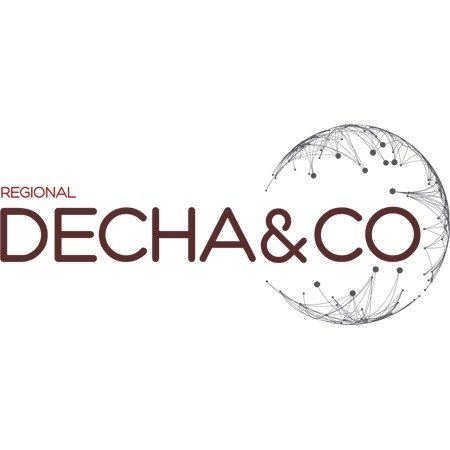Best Project Finance Lawyers in Yangon
Share your needs with us, get contacted by law firms.
Free. Takes 2 min.
List of the best lawyers in Yangon, Myanmar
About Project Finance Law in Yangon, Myanmar
Project finance is a method used to fund large-scale projects, such as infrastructure, energy plants, real estate developments, and industrial ventures. In Yangon, Myanmar, project finance typically involves the creation of a separate legal entity to develop and operate a project, with loans or investments being repaid from the project’s cash flows rather than the sponsors’ general assets. This structure is particularly attractive to investors and lenders seeking to mitigate risk. The regulatory landscape for project finance in Myanmar is evolving as the country attracts increasing foreign investment and undertakes ambitious development goals.
Why You May Need a Lawyer
Seeking legal advice in project finance is crucial for several reasons. Complex financial and legal arrangements must comply with local regulations as well as international best practices. Common situations requiring legal help include negotiating project agreements, conducting due diligence, dealing with government permits, ensuring compliance with environmental regulations, and securing financing from domestic or international lenders. Lawyers are also instrumental in structuring the project entity, drafting contracts, and helping resolve any disputes that may arise during the project lifecycle.
Local Laws Overview
Myanmar’s legal framework for project finance is influenced by a combination of local statutes, government policies, and international investment principles. Key legislations include the Myanmar Companies Law 2017, the Foreign Investment Law, Environmental Conservation Law, and sector-specific regulations such as the Electricity Law or the Petroleum Law. The Myanmar Investment Commission (MIC) regulates foreign investment, and projects may require MIC approval or special permits. Additionally, there are restrictions on land ownership and repatriation of profits, which project sponsors must carefully navigate. Public-Private Partnership (PPP) models are becoming more common in Yangon, requiring adherence to specific bidding and contract procedures. Compliance with anti-corruption and anti-money laundering laws is also essential for all project finance transactions in the country.
Frequently Asked Questions
What is project finance and how is it used in Yangon?
Project finance is a financing method where a project is funded through a separate legal entity, with loan repayments made from the project’s future revenues. It is commonly used in Yangon for infrastructure, energy, and large commercial developments.
Can foreign investors participate in project finance deals in Myanmar?
Yes, foreign investors can participate, usually through joint ventures or by establishing a local subsidiary. Certain sectors may require special approvals from the Myanmar Investment Commission.
What types of collateral are typically involved in project finance?
Collateral may include project assets, contracts, accounts receivable, and in some cases, sponsor guarantees or government guarantees for public infrastructure projects.
What government approvals are necessary for project finance in Yangon?
Approvals often include permits from the relevant ministry, licenses from sector-specific agencies, Myanmar Investment Commission endorsement, and sometimes parliamentary approval for large public projects.
Are there restrictions on land ownership for foreign-financed projects?
Yes, under Myanmar law, foreigners and foreign corporations cannot own land outright. Long-term leases and build-operate-transfer models are common alternatives.
What are common risks in project finance deals in Myanmar?
Common risks include political instability, legal and regulatory changes, currency fluctuations, force majeure, and land acquisition issues.
Are local banks active in project finance?
Local banks participate, but their capacity for large project finance deals is often limited compared to international or multilateral lenders.
How is dispute resolution typically handled in project finance?
Dispute resolution may occur through Myanmar courts or, more commonly, through arbitration, as specified in contracts. International arbitration is frequently preferred by foreign investors.
What environmental regulations affect project finance?
Projects must comply with the Environmental Conservation Law and obtain environmental clearance from the Environmental Conservation Department, which may require an Environmental Impact Assessment for major projects.
How can profits be repatriated from a project-financed entity?
Repatriation of profits is permitted with proper approval, compliance with tax obligations, and adherence to foreign exchange regulations set by the Central Bank of Myanmar.
Additional Resources
Those seeking legal advice or information on project finance in Yangon can consult the following organizations and governmental bodies:
- Myanmar Investment Commission (MIC) - for investment permits and regulatory guidance
- Ministry of Electricity and Energy - for energy projects
- Ministry of Construction - for infrastructure and real estate projects
- Central Bank of Myanmar - for foreign exchange regulations
- Myanmar Bar Association - to find qualified project finance lawyers
- Myanmar Chamber of Commerce - for business networking and support
Next Steps
If you require legal assistance in project finance in Yangon, begin by identifying reputable law firms or lawyers specializing in this area. Prepare all relevant project documents and clearly define your objectives and concerns. Arrange an initial consultation to discuss the structure of your project, applicable laws, potential risks, and compliance requirements. Ensure that your lawyer is familiar with both local law and international project finance standards. Consider seeking advice early in the planning process to minimize risks and maximize the chances of a successful financing arrangement.
Lawzana helps you find the best lawyers and law firms in Yangon through a curated and pre-screened list of qualified legal professionals. Our platform offers rankings and detailed profiles of attorneys and law firms, allowing you to compare based on practice areas, including Project Finance, experience, and client feedback.
Each profile includes a description of the firm's areas of practice, client reviews, team members and partners, year of establishment, spoken languages, office locations, contact information, social media presence, and any published articles or resources. Most firms on our platform speak English and are experienced in both local and international legal matters.
Get a quote from top-rated law firms in Yangon, Myanmar — quickly, securely, and without unnecessary hassle.
Disclaimer:
The information provided on this page is for general informational purposes only and does not constitute legal advice. While we strive to ensure the accuracy and relevance of the content, legal information may change over time, and interpretations of the law can vary. You should always consult with a qualified legal professional for advice specific to your situation.
We disclaim all liability for actions taken or not taken based on the content of this page. If you believe any information is incorrect or outdated, please contact us, and we will review and update it where appropriate.









